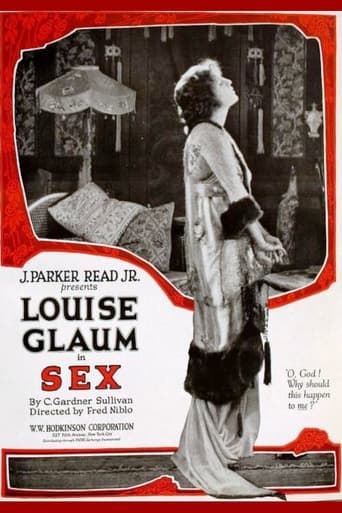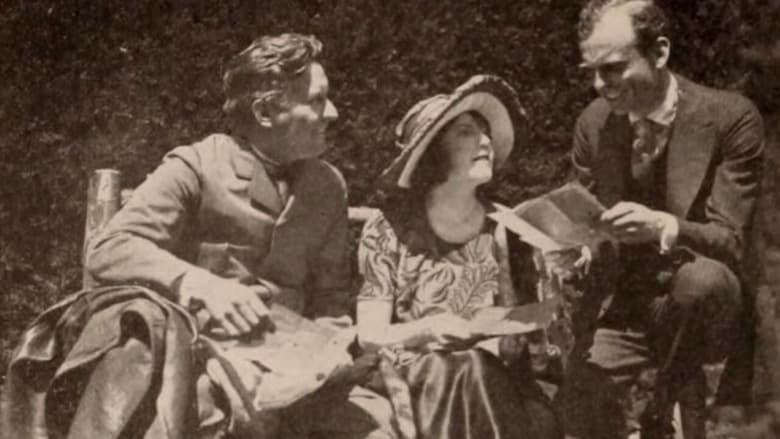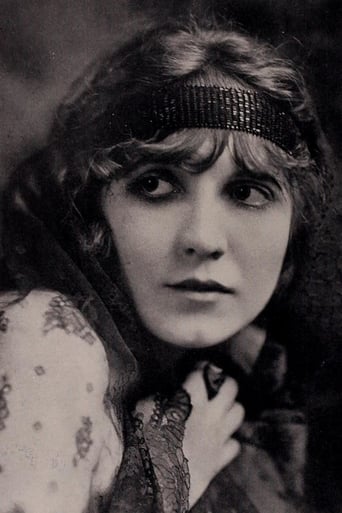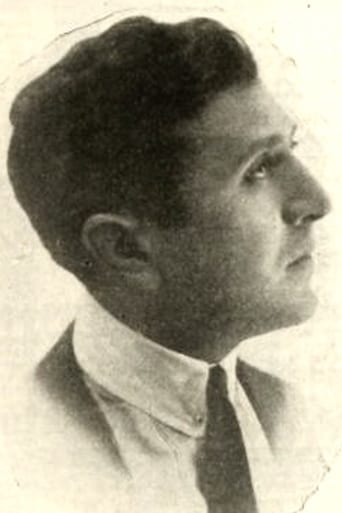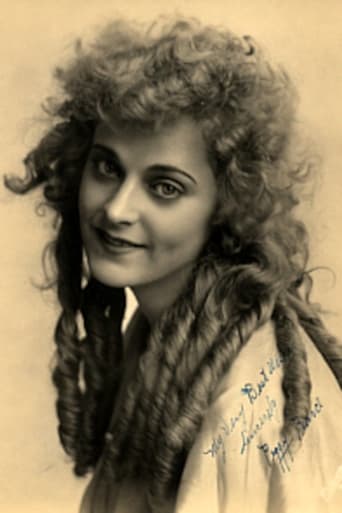Sex (1920)
A Broadway actress uses her sex appeal to ruin a marriage only to dump her lover for a richer prospect.
Watch Trailer
Cast
Reviews
From my favorite movies..
It’s not bad or unwatchable but despite the amplitude of the spectacle, the end result is underwhelming.
It is an exhilarating, distressing, funny and profound film, with one of the more memorable film scores in years,
The story, direction, characters, and writing/dialogue is akin to taking a tranquilizer shot to the neck, but everything else was so well done.
I think anyone with an interest in cinema history and also with genuine appreciation of early films (not inclined that is to think in terms, now thankfully outmoded, of waxwork actors and "silent relics") will be impressed with how good this film is and will be surprised it is so little known.It follows in some ways in the lineage of the classic Theda Bara vamp film of 1914, A Fool There Was, but that film, by contrast, is rather over-rated on account of its historical importance and is a much less believable account of a vamp (Yevgeny Bauer's 1914 Ditya bolshogo goroda/Child of a Big City is a rather better film on the same subject). But both these films portray the "vamp" as a horror (A Fool There Was following Kipling's somewhat mysogynist poem), even if the Bauer, unlike the Bara film, does place the behaviour of the woman in a believable social context.Glaum's vamp in this film is a much more sympathetic character. She is for a start as much victim as predator, an aspect that had come to the fore in later in more nuanced versions of the vamp (Pastrone's Tigre Real 1916 for instance is already a case in point). In fact Glaum is less like a vamp here and more like the quasi-feminist heroines of some films of the early thirties (the 1933 Baby Face is probably the best) before the more formal enforcement of the Hays Code made it rather more difficult to portray "immoral" women as simply individuals battling to survive in an unequal world (from a point of view both of class and gender).The film is framed as an "exploitation" film (and the producer Paker Read was already something of a specialist) but this is already a device necessary, particularly in US films, to avoid censorship. Which it did very successfully in this case. The film met with a bit of flack but received rave notices with the papers carefully utilising the supposed "moral" aspect of the film to justify it while at the same time praising the honesty of Read's approach. One can find a very interesting sample of these reviews in the appropriate Wikipedia entry.Finally praise for the mise en scène which is unusually good for a US film of this period (reminiscent of the more "realist" Italian films of the period). There is a fine scene for instance where Daisy, the vamp's naive protégée, is in the foreground watching events unfold amongst the triangle of main characters deep in the background, two rooms beyond. The copy that I saw is rather poor and this is a film that could certainly do with sympathetic restoration in which case I do not doubt it would be regarded as rather more of a classic than a relic.As for the ending of the film, it is rather truer to life than those of the thirties films where reform after marriage is its own romantic reward. Here the more melodramatic possibilities are sensibly avoided, the vicious circle is well portrayed and there are worse punishments than being a lonely but wealthy woman cruising around the world.Fred Niblo is an undeservedly forgotten direct, responsible five years later for quite the best film version of the Lew Wallace novel Ben-Hur.
Louise Glaum is pretty much forgotten today. Despite a less than glamorous name, she plays the lead--a nightclub performer who LOVES to seduce married men. She seems heartless and selfish. Eventually, however, this vamp marries a very rich man and is surprised to see how much she enjoys domestic life. However, her beloved husband, Dick, begins cheating on her--with one of the dancers that Glaum instructed on how to be an über-vamp! Talk about irony.All in all, this is a very good silent film with a nice moral lesson. So, despite the very salacious title, the film is actually a nice endorsement of fidelity...though like so many of the Pre-Code films, it takes a long time getting there and glories adultery in the process! Apart from the interesting story, I also really loved the costumes. Seeing Glaum wearing a spidery outfit as she performs was a hoot! My only reservation is the very end--it looks as if perhaps part of the film is missing and they just tacked a very moralistic intertitle card there to try to hide this.
Interesting morality tale about a vamp named Adrienne Renault (Louise Glaum) who works the "midnight frolic" at a New York nightclub where she performs this season's sensation "the Spider Dance", which begins by her floating down from the ceiling clinging to a giant spider web. When not dressed up in spider attire, this gal is busy running around and attending wild parties at four in the morning with a married "admirer" named Philip, who leaves his poor wife home alone and lonely, and at the same time Adrienne has taken under her wing, Daisy, an innocent, small-town girl who also dances at the club. Adrienne shows "the kid" the ropes, telling her to "grab what she can get" and not worry whether a man is already married. Soon Philip's wife has hired a detective who gives up the dope on hubby's affair and next thing you know, they are divorced. So - Adrienne's got him all for herself - but not for long 'cause she soon has her vampish eyes on yet another rich man! And what goes around comes around - as soon our vamp learns her lesson about stealing husbands and gets her comeuppance the hard way.This film is quite good, if a slight bit preachy. The wild nightclubs and scenes of frolicsome party-goers are fun to watch and Louise Glaum does a fine job switching from leopard-print kimono wearing, cigarette puffing, ostrich feather fan waving home-wrecker to good girl trying to run her own home. The film has well-done artwork on each title card giving an interesting reflection of the action currently on screen. The print of this on the DVD I saw looked decent, just a bit faded but fairly good as a whole. It featured an appropriate organ score. Worth seeing.
Shortly after its premiere, in New Jersey, this film was shown in Pennsylvania, where the State Board of Censors changed the title for screenings around that state to SEX CRUSHED TO EARTH, which is comprehensible for the time, but the work is after being a morality play, with the lead character, Adrienne Renault(Louise Glaum) realizing what the wages of her superficial existence are to be. Adrienne, star of the Frivolity Theatre in New York, enjoys stealing husbands with her major acquisition being Phillip Overman (William Conklin) whose wife she scorns when Mrs. Overman begs for his return; a chorine, Daisy (Peggy Pearce) is impressed by Adrienne's victorious self-absorption, and when the latter disposes of Overman in favor of a millionaire, Dick Wallace (Irving Cummings), the two performers find themselves in competition for him, which buckles the flooring of Adrienne's harsh philosophy. Although baldly a melodrama, SEX has many good moments and effective scenes, is well directed by Fred Niblo, and is a proper showcase for Glaum, who at the time of filming outdistances Theda Bara in the sweepstakes for America's favorite vamp; the titles offer witty art design, editing is smoothly done and Cummings, as a wealthy man about town, gives an outstanding, nuanced performance as the axle of the story.
